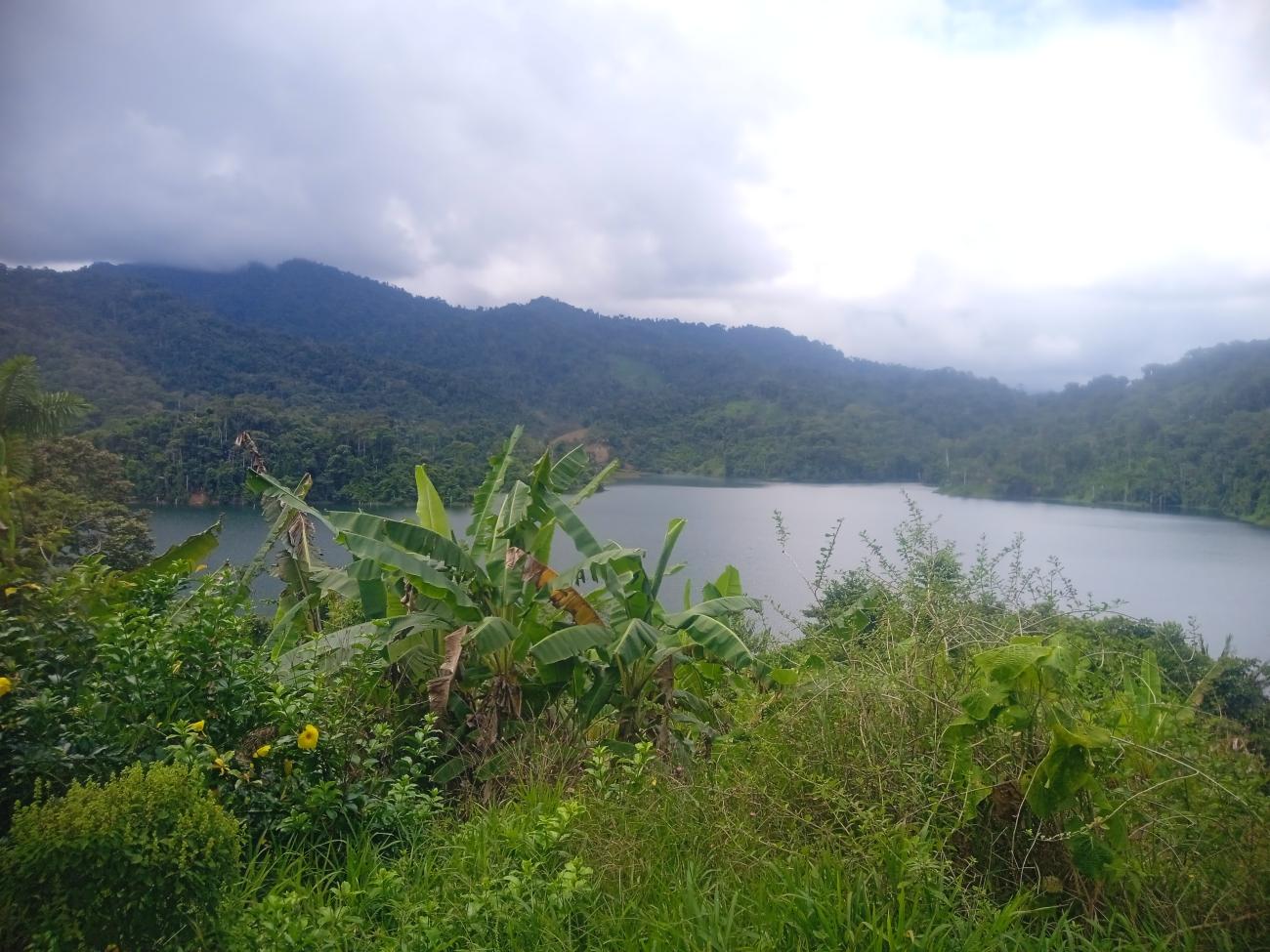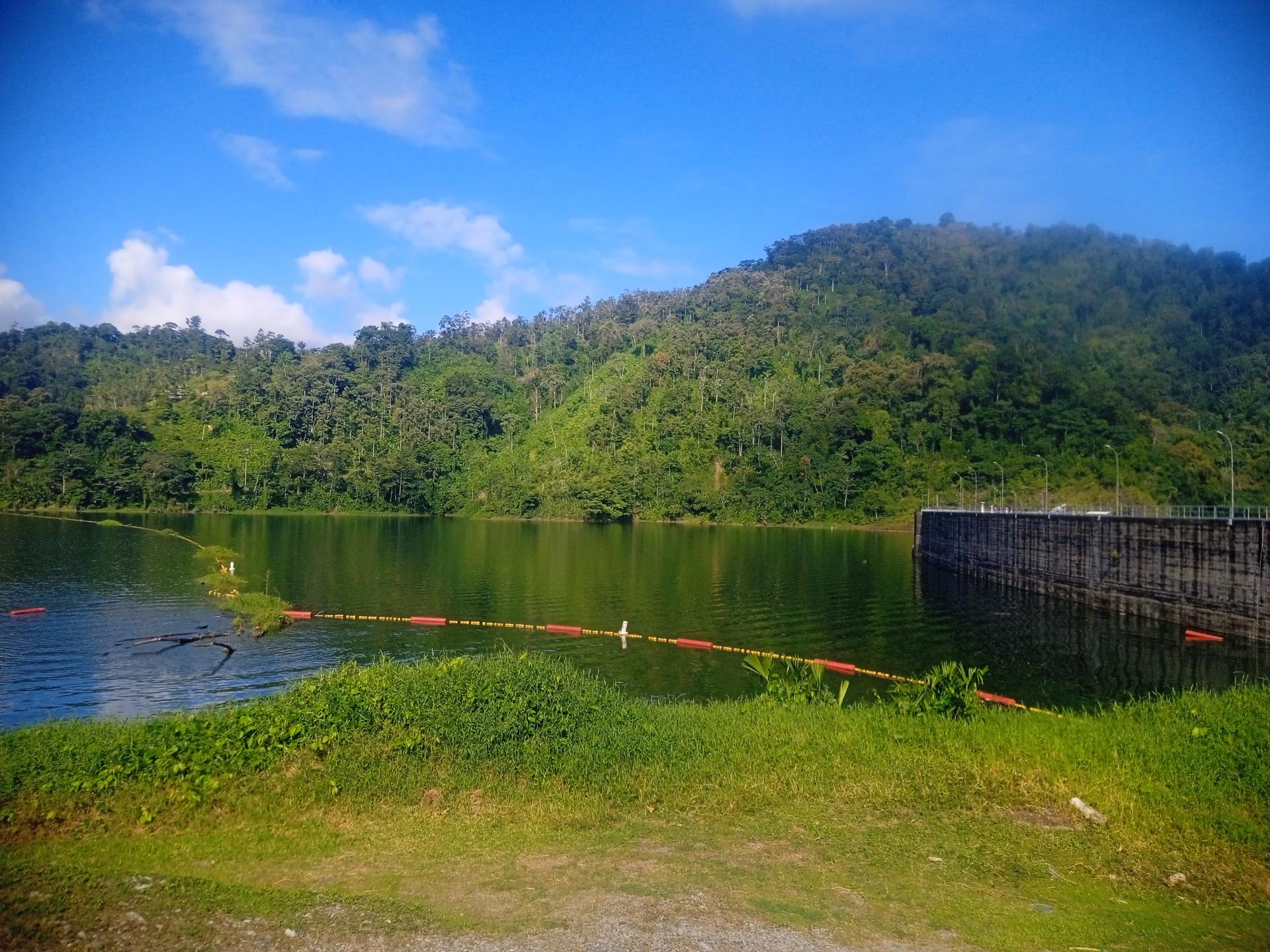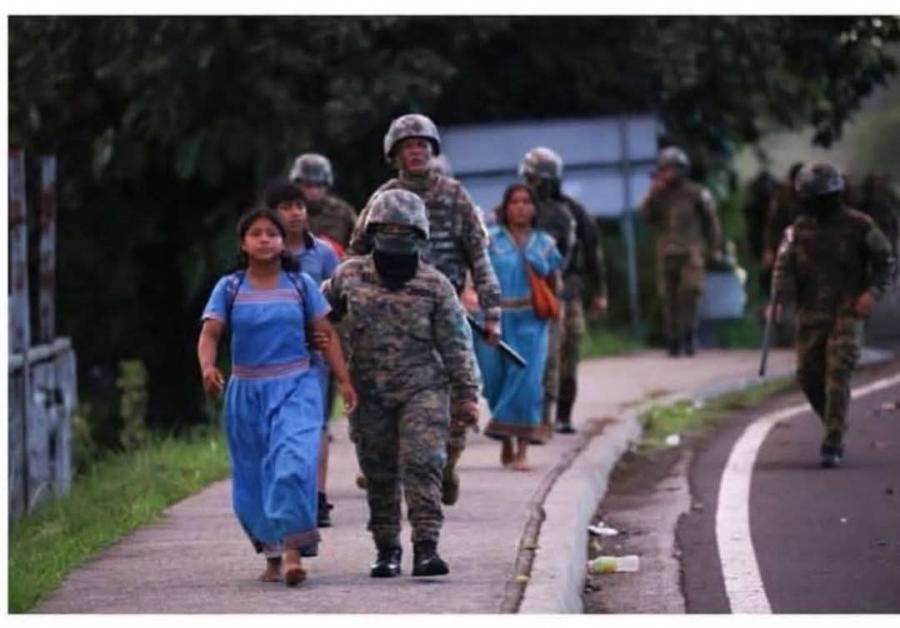
In November 2025, the Panamanian State's human rights record will be examined again before the United Nations Human Rights Council under the Universal Periodic Review (UPR). This review mechanism examines compliance with human rights in all UN member states. In this context, Cultural Survival, with contributions from the Indigenous communities affected by the Chan 75 hydroelectric dam, has submitted a stakeholder report documenting the persistent violations of the collective rights of Indigenous Peoples in Panama, focusing particularly on the impact of megaprojects.
Panama is a territory ancestrally inhabited by seven Indigenous Peoples: Ngäbe, Buglé, Guna, Emberá, Wounaan, Naso Tjér Di, and Bribri. Of these, only six have legally recognized territories under the figure of Indigenous comarcas (regions), a legal and political mechanism to guarantee the territorial rights and autonomy of Indigenous Peoples in Panama. Despite representing a historical advance, the existence of the Comarcas has not fully guaranteed the real exercise of these rights. The communities continue to face various forms of state intervention, regulatory frameworks that do not reflect their own systems of organization and rights, and territorial dispossession.
In addition to the Comarcas, there are Indigenous territories that have been titled as collective lands under Law 72 of 2008, which allows for the adjudication of collective property to Indigenous Peoples outside of the Comarcas. However, many other Indigenous communities continue to struggle for legal recognition of their lands. This situation not only exposes them to forced displacement and dispossession but also seriously undermines their spiritual and cultural fabric. The lack of recognition of their land rights affects fundamental ancestral practices, such as traditional medicine, dance, art, and the sacred bond with Mother Earth, which are the basis of the Buen Vivir.
People who identify themselves as Indigenous represent 17.2% of the country's total population. However, a large part of this population lives outside the officially recognized Comarcas, facing serious challenges regarding access to rights, basic services, and legal recognition of their ancestral lands. In addition, drafting a comprehensive development plan to close the deep inequality gaps in these territories remains a priority.

Impact of the Chan 75 Hydroelectric Project on Ngöbe Communities
Since 2005, the Ngöbe communities of the regions of Valle Rey, Guayabal, Changuinola Arriba, Charco la Pava, Boca Chica, Cable Vía, Guabo, Corriente Grande, Isla Venao, Sursuba, Cochigró, Quebrada la Mina, Laso, Quisori, Selvina, Santa Rosa, Alto Sorí, and Zegla have suffered the devastating impact of the construction of the Chan 75 Hydroelectric Dam by the US company AES. This megaproject has displaced entire communities, dispossessing them of their lands, homes, and natural resources essential to their survival. The impact has been particularly severe for women, who are the main guardians of the land, seeds, and ancestral knowledge. Their roles in the reproduction of life and community well-being have been altered by the destruction of their environment. The company has implemented a process of community division, offering selective compensation to some people in an opaque and non-transparent manner. Many people were pressured to sign documents selling their land without being fully aware of the consequences and without receiving copies of the documents. This process has generated fractures within families and communities, weakening the bonds of trust and social cohesion.
Violation of the Right to Free, Prior and Informed Consultation (FPIC)
The Panamanian State has Law No. 37 of August 2, 2016, which establishes consultation and Free, Prior and Informed Consent for Indigenous Peoples, in accordance with Article 6 of ILO Convention 169. However, since its enactment, progress in its implementation has been minimal, and its effective application has not been guaranteed in cases of mega-project development affecting Indigenous territories. According to international standards, Indigenous Peoples have the right to consent or reject projects that affect their territories, without any project being imposed on them without their agreement. However, the Panamanian State and AES have failed to comply with these obligations. Instead of a consultative process, the government has favored the fragmentation of the communities, holding selective meetings and excluding many affected people, which has deepened internal conflicts and distrust.
Conflict between Environmental Conservation and Indigenous Peoples' Rights
An important contradiction in this context is the creation of the Bosque Protector Palo Seco Protected Area in 1983, an area that overlaps the ancestral territories of the Ngöbe communities. This area was established without any consultation with the communities that already inhabited the area, and currently, the Panamanian State argues that the lands where the hydroelectric dam was built are not Indigenous ancestral lands due to their inclusion in this protected area.
Disruption of Community fabric and Creation of Divisions
The Panamanian government has systematically denied the possibility of establishing a genuine dialogue with all the Ngöbe communities affected by the Chan 75 hydroelectric dam. Instead of an inclusive process, it has opted for a fragmented approach, unilaterally selecting certain people and communities, without considering the organizational structures and community processes of the Ngöbe people. This strategy is not only administrative, but also a way to divide and weaken the social and spiritual fabric of the Indigenous communities. The loss of territory is not only a physical dispossession, but also a cultural, spiritual, and emotional one. The rupture of ties with the land implies the loss of sacred sites, ancestral knowledge, traditional practices, and the collective identity of the Ngöbe people. The loss of the land also means the loss of sacred spaces, of ancestral knowledge linked to medicinal plants, of rivers as a source of life and spiritual energy. This rupture has brought with it a profound fragmentation of the cultural fabric, weakening community ties, traditional celebrations, oral transmission, and collective identity.
Gender Impact: Indigenous Women at the Center of the Crisis
Indigenous women have been especially affected by displacement. Land dispossession has disrupted their daily living spaces, such as the rivers where they carried out washing activities, plant gathering paths, and meeting places to share knowledge and care. In addition, many women have been excluded from negotiation and compensation processes, leaving them without a voice in decisions that affect their lives and those of their children. This exclusion has increased their emotional burden and economic vulnerability, while their role as pillars of resistance and community reconstruction has been rendered invisible.
It is essential that reparations are not limited to individual compensation but recognize the collective damage and are adapted to Indigenous ways of life, incorporating a gender perspective. Only in this way will it be possible to offer fair and effective reparations that allow for the reconstruction of the social and cultural fabric of the affected communities.
In previous UPR evaluations, Panama received key recommendations related to Indigenous Peoples' rights, yet these have not been implemented efficiently. Reports by UN rapporteurs and bodies such as the Committee on the Rights of the Child pointed to serious shortcomings: infrastructure projects such as hydroelectric dams in Chiriqui, including Chan 75, were promoted without full environmental impact assessments and adequate consultation with affected communities. They denounced the forced displacement of Indigenous families, the lack of effective reparations, and the failure to disclose the risks of these megaprojects publicly.
For Indigenous Peoples, following up on these recommendations is not only a technical or legal issue; it is a vital demand for the survival of their cultures, territories, and spiritualities. The effective fulfillment of these recommendations represents an international commitment that the Panamanian State must honor with responsibility, transparency, and an honest dialogue with Indigenous Peoples, as demanded by the affected communities, through the reports presented by Cultural Survival and other organizations defending Indigenous rights.
In the case of Chan 75, even though the Inter-American Commission on Human Rights issued a Merits Report (401/21) with clear recommendations to repair damages, the State has moved forward with partial, exclusive agreements without broad participation. In 2022, it initiated closed-door meetings with a minority of people, leaving out entire communities that were also displaced. This strategy, based on fragmentation and co-optation, undermines the right to self-determination and deepens the rupture of the community fabric.
Far from stopping the extractive model, the State continues to promote new megaprojects such as Chan II and the Fourth Electricity Transmission Line, again without applying FPIC or guaranteeing reparations for previous damages.
Recommendations to the State of Panama
In the framework of the UPR, Cultural Survival and the Ngöbe Indigenous communities affected by the Chan 75 hydroelectric dam urge UN Member States to make the following recommendations to the State of Panama:
- Ratify ILO Convention 169.
- Adequately implement Law No. 37 of 2016 on Free, Prior and Informed Consent (FPIC).
- Include all affected communities in the negotiation processes for the reparation of rights violated as a result of the Chan 75 hydroelectric project.
- Establish an inclusive dialogue with all communities affected by Chan 75 to reach an agreement on land ownership.
- Facilitate access to information on processes related to the territorial recognition and security of indigenous communities.
- Ensure due diligence in all proceedings for the titling of collective lands presented under Law 72 of 2008.

